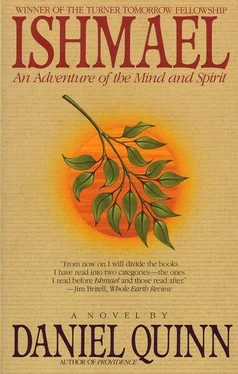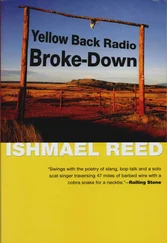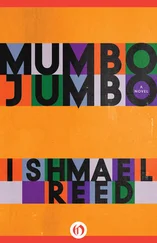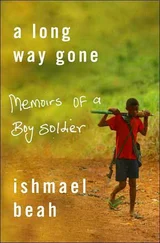“Okay. Why not? I mean, well, what was stopping him from doing that? What was stopping him was the fact that if he settled down in one place for more than a few weeks, he’d starve. As a hunter–gatherer, he would simply clean the place out—there would be nothing left to hunt and gather. In order to achieve settlement, man had to learn one fundamental manipulation. He had to learn how to manipulate his environment so that this food–exhaustion didn’t occur. He had to manipulate it so that it produced more human food . In other words, he had to become an agriculturalist.
“This was the turning point. The world had been made for man, but he was unable to take possession of it until this problem was cracked. And he finally cracked it about ten thousand years ago, back there in the Fertile Crescent. This was a very big moment—the biggest in human history up to this point. Man was at last free of all those restraints that…. The limitations of the hunting–gathering life had kept man in check for three million years. With agriculture, those limitations vanished, and his rise was meteoric. Settlement gave rise to division of labor. Division of labor gave rise to technology. With the rise of technology came trade and commerce. With trade and commerce came mathematics and literacy and science, and all the rest. The whole thing was under way at last, and the rest, as they say, is history.
“And that’s the middle of the story.”
“Very impressive,” Ishmael said. “I’m sure you realize that the ‘big moment’ you’ve just described was in fact the birth of your culture.”
“Yes.”
“It should be pointed out, however, that the notion that agriculture spread across the world from a single point of origin is distinctly old hat. Nevertheless the Fertile Crescent remains the legendary birthplace of agriculture, at least in the West, and this has a special importance that we’ll look at later on.”
“Okay.”
“Yesterday’s part of the story revealed the meaning of the world as it’s understood among the Takers: The world is a human life–support system, a machine designed to produce and sustain human life.”
“Right.”
“Today’s part of the story seems to be about the destiny of man. Obviously it was not man’s destiny to live like a lion or a wombat.”
“That’s right.”
“What is man’s destiny then?”
“Hm,” I said. “Well. Man’s destiny is… to achieve, to accomplish great things.”
“As it’s known among the Takers, man’s destiny is more specific than that.”
“Well, I suppose you could say that his destiny is to build civilization.”
“Think mythologically.”
“I’m afraid I don’t know how that’s done.”
“I’ll demonstrate. Listen.”
I listened.
“As we saw yesterday, creation wasn’t complete when jellyfish appeared or when amphibians appeared or when reptiles appeared or even when mammals appeared. According to your mythology, it was complete only when man appeared.”
“Right.”
“Why was the world and the universe incomplete without man? Why did the world and the universe need man?”
“I don’t know.”
“Well, think about it. Think about the world without man. Imagine the world without man.”
“Okay,” I said, and closed my eyes. A couple minutes later I told him I was imagining the world without man.
“What’s it like?”
“I don’t know. It’s just the world.”
“Where are you?”
“What do you mean?”
“Where are you looking at it from?”
“Oh. From above. From outer space.”
“What are you doing up there?”
“I don’t know.”
“Why aren’t you down on the surface?”
“I don’t know. Without man on it… I’m just a visitor, an alien.”
“Well, go on down to the surface.”
“Okay,” I said, but after a minute I went on to say, “That’s interesting. I’d rather not go down there.”
“Why? What’s down there?”
I laughed. “The jungle is down there.”
“I see. You mean, ‘Nature, red in tooth and claw… Dragons of the prime that tare each other in their slime.’ ”
“That’s it.”
“And what would happen if you did go down there?”
“I’d be one of the ones the dragons were tearing in their slime.”
I opened my eyes in time to see Ishmael nodding. “And it is at this point that we begin to see where man fits into the divine scheme. The gods didn’t mean to leave the world a jungle, did they?”
“You mean in our mythology? Certainly not.”
“So: Without man, the world was unfinished, was just nature, red in tooth and claw. It was in chaos, in a state of primeval anarchy.”
“That’s right. That’s it exactly.”
“So it needed what?”
“It needed someone to come in and… straighten it out. Someone to put it in order.”
“And what sort of person is it who straightens things out? What sort of person takes anarchy in hand and puts it in order?”
“Well… a ruler. A king.”
“Of course. The world needed a ruler. It needed man.”
“Yes.”
“So now we have a clearer idea what this story is all about: The world was made for man, and man was made to rule it .”
“Yes. That’s very obvious now. Everyone understands that.”
“And this is what?”
“What?”
“Is this fact?”
“No.”
“Then what is it?”
“It’s mythology,” I said.
“Of which no trace is to be found in your culture.”
“That’s right.”
Once again Ishmael stared at me glumly through the glass.
“Look,” I said after a bit. “The things you’re showing me, the things you’re doing, are… almost beyond belief. I know that. But it’s just not in me to leap up out of my chair while striking my brow and crying, ‘My God, this is incredible!’ ”
He wrinkled his forehead thoughtfully for a moment before saying: “What’s wrong with you then?”
He seemed so genuinely concerned that I had to smile. “All frozen inside,” I told him. “An iceberg.”
He shook his head, sorry for me.
“To return to our subject…. As you say, it took man a long, long time to tumble to the fact that he was meant for greater things than he could achieve living like a lion or a wombat. For some three million years he was just part of the anarchy, was just one more creature rolling around in the slime.”
“Right.”
“It was only about ten thousand years ago that he finally realized that his place was not in the slime. He had to lift himself out of the slime and take this place in hand and straighten it out.”
“Right.”
“But the world didn’t meekly submit to human rule, did it?”
“No.”
“No, the world defied him. What man built up, the wind and rain tore down. The fields he cleared for his crops and his villages, the jungle fought to reclaim. The seeds he sowed, the birds snatched away. The shoots he nurtured, the insects nibbled. The harvest he stored, the mice plundered. The animals he bred and fed, the wolves and foxes stole away. The mountains, the rivers, and the oceans stood in their places and would not make way for him. The earthquake, the flood, the hurricane, the blizzard, and the drought would not disappear at his command.”
“True.”
“The world would not meekly submit to man’s rule, so he had to do what to it?”
“What do you mean?”
“If the king comes to a city that will not submit to his rule, what does he have to do?”
“He has to conquer it.”
Читать дальше
Конец ознакомительного отрывка
Купить книгу












